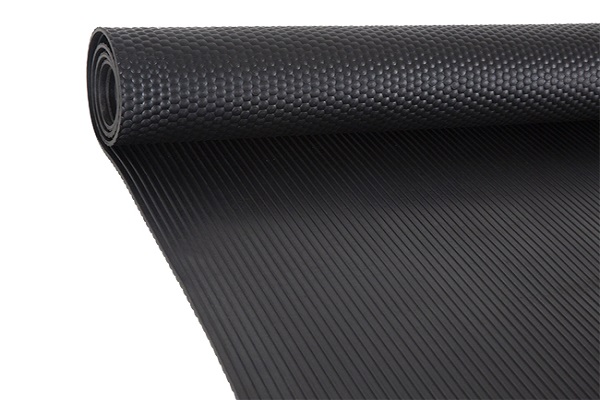
The antibacterial performance of stable mats is a key factor affecting the health of the breeding environment and the welfare of animals.It not only directly relates to the quality of life of livestock but also has a profound impact on the economic benefits of the farm.From material properties,production processes to actual application scenarios,multiple factors jointly shape the performance of stable mats in the antibacterial field.
Material properties and antibacterial basis of stable mats
Rubber,as an organic polymer material,naturally possesses certain elasticity and durability,but it faces challenges in terms of antibacterial and antifungal properties.The untreated surface of rubber is prone to accumulate moisture,creating a microenvironment suitable for mold growth,especially in the humid and organic-rich(such as manure and feed residues)environment of cowsheds,which accelerates mold reproduction.Mold not only causes discoloration and deformation of the rubber mat surface but may also release harmful gases,threatening the respiratory health of livestock and reducing the lifespan of the rubber mat.However,by adding specific antibacterial agents and optimizing the material formula,the inherent antibacterial performance of rubber can be significantly enhanced,enabling it to inhibit or delay the growth of microorganisms.
In addition,regular cleaning and maintenance are necessary measures to keep the surface clean and prevent the spread of mold.

>send emails to sales@jingdongrubber.com,get a quote now
Comprehensive protective effects in practical applications
In the cowshed setting,the antibacterial performance of rubber mats is not isolated but works in conjunction with overall hygiene management to achieve maximum effectiveness.
For instance,compared to cement floors or wooden floors,rubber mats inherently possess anti-slip,heat insulation,and moisture-proof properties,reducing the accumulation of condensation water due to high humidity or temperature fluctuations,thereby indirectly inhibiting mold growth.
Moreover,the easy-to-clean feature of rubber mats facilitates daily disinfection operations for farmers,further blocking the transmission chain of pathogens.
Practical evidence shows that farms using high-quality stable mats have significantly lower incidences of skin diseases and hoof diseases in livestock,reduced medical expenses,increased milk production in dairy cows,and improved economic benefits.
The importance of testing methods and industry standards
To ensure that the antibacterial performance of stable mats meets expectations,scientific testing methods and strict industry standards are indispensable.
In China’s rubber industry,the testing of anti-mold performance often employs methods such as mold colony counting and microscopic observation to assess the material’s ability to resist mold growth under simulated actual conditions.
The antibacterial performance of stable mats is influenced by multiple factors including material properties,surface design,production processes,and usage environments.
Jingdong Rubber Co., Ltd. is a professional rubber sheet manufacturer, producing silicone rubber sheet, natural rubber sheet, fluorine rubber sheet, neoprene rubber sheet, insulating rubber sheet,EPDM rubber sheets, oil-resistant rubber sheets, anti-static rubber sheets, flame-retardant rubber sheets, conductive rubber sheets, anti-slip rubber sheets, and cowshed mats, etc. with 40 years of industry experience, are popular both at home and abroad. If you need any of our products,please send emails to sales@jingdongrubber.com.

